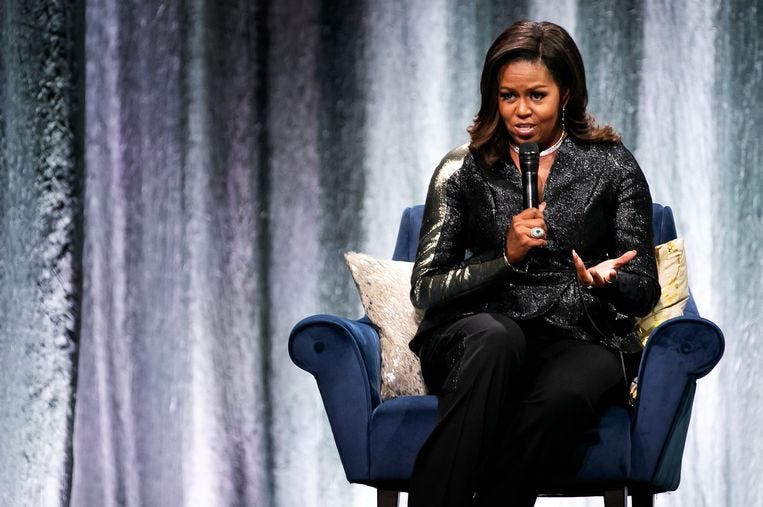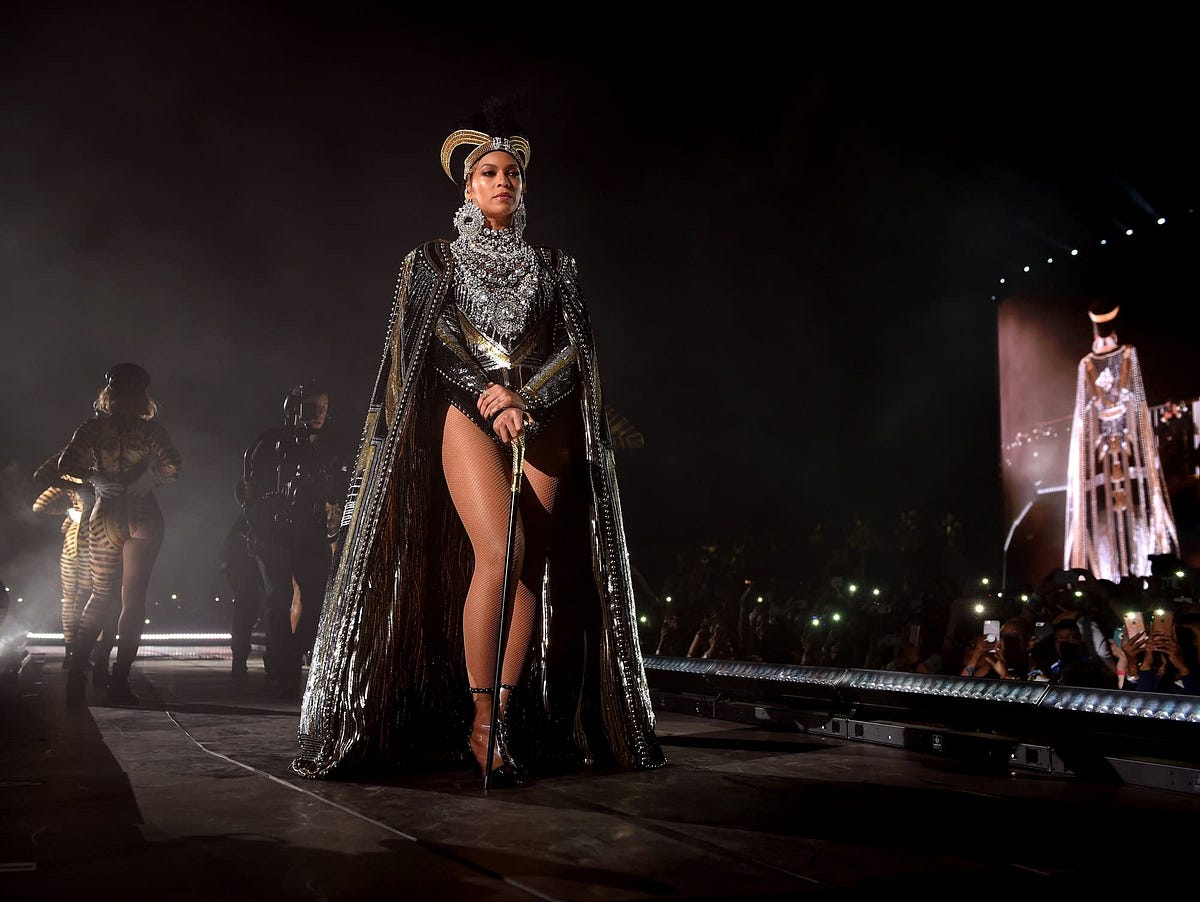I have been watching and rewatching the glory and salvation that is Beyoncé’s Homecoming. The over 2-hour film chronicles her historical performance as the first Black woman to headline Coachella. The film is everything and shows the strength and dedication of a woman who has reinvented so much of the music industry. Truly, there is nothing I can say about Beyoncé that hasn’t been said already, she is an icon, artist, visionary, activist, and the closest thing to a representation of God on Earth.
On the same day Homecoming came out, my mom and I saw Michelle Obama on her international Becoming tour in Amsterdam. I wore a graphic dark green dress with flowers cascading on the back and front. As we were leaving, my dad asked why I had chosen to wear such a nice outfit, “It’s not like Michelle Obama is going to see you.” I laughed and simply said, “It’s Michelle Obama.” The 17,000-person venue was filled to capacity with a majority non-Americans beaming eagerly to see a woman who stands as a symbol of hope.

Now, this might seem like just a coincidence — to have a single day where I was blessed with so much uplifting feminist centric content. But for me, it was as predictable as my morning coffee because Black women continue to be the chosen source of encouragement for millions, whether some admit it or not.
With our country at war with itself ideologically, Black women are consistently the ones creating poignant work consumed by the masses. Whether it’s Oprah, Michelle Obama, or Beyoncé, Black women are serving as the leaders we all look up to. I mean, how many think pieces did we read about Oprah running for president after just a short Golden Globes speech? These black women are without a doubt exceptional but we have to be careful. We can’t think of Black women as superheroes coming to save us. And we certainly can’t expect any one person to “save us” from this mess. (I’m looking at you white women)

Michelle Obama’s memoir Becoming has already sold more than 10 million copies, quickly becoming one of the best selling in history. In her book, Obama details the difficulties of being a Black woman in the White House, a historic monument built by slaves. Watching her on stage, I was inspired but at the same time, I recognized the work and incredible restraint it must have taken her to be as successful as she was as First Lady.
Michelle Obama and Beyoncé are not just motivational, they’re financial powerhouses. Netflix paid Beyoncé 60 million dollars for a three-project deal and watching Homecoming, I think Netflix got a pretty good deal. And her bankability is particularly impressive because Beyoncé does not let the audience forget who she’s constructing masterpieces like Homecoming for: Black women. It’s obvious in her lyrics, dancers, musical interludes, attitudes, and themes. Suddenly finding myself with a more flexible income, I went to my first Beyoncé concert after graduating college. I wanted to see the woman who had kept me awake as I studied for finals and reignited the power of the word feminist. I’d never seen a performer who more perfectly speaks to this moment in time. She spoke of the past but appealed to our present.
As I reflect on both Michelle Obama’s work and Beyoncé’s art, I am reminded of something we should all acknowledge: we owe Black women a debt that can never be repaid. They are the ones driving and creating our popular culture, creating work and activism (cough Tarana Burke cough) that captivates not only Black women but all of us.
Their burden is heavy, one of exceptionalism and brilliance. It’s not a coincidence that Black women continue to rise to the top of our cultural zeitgeist, they’ve worked the hardest. In a country that has continually told black women they are not safe, very few have made it to the top echelons of our society. It is this lack of systemic privilege that makes their work even more spectacular.
Michelle Obama and Beyoncé are two of the few Black women who have overcome the barriers society put in front of them. Not only do Black women continue to make 61 cents on the white man’s dollar, Black women continue to face the highest rates of maternal deaths, disproportionate rates of violence, and few positions of power. In recent years, I’ve found myself turning more and more to Black women for inspiration, and it’s clear we must support Black women whether they are a billionaire, a leader of this nation, or an artist. It’s the least we can do.

